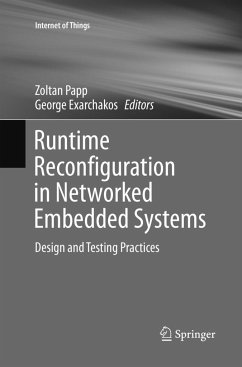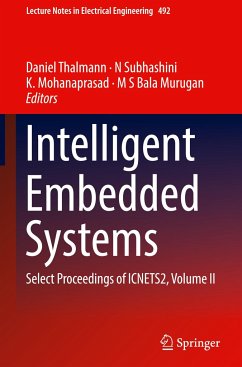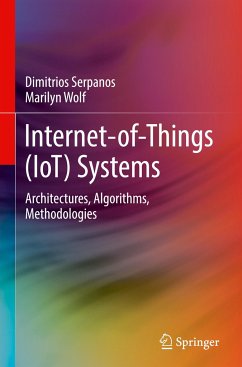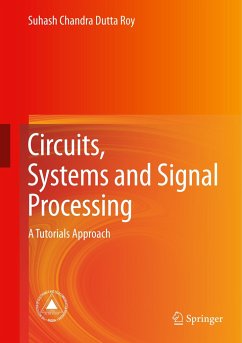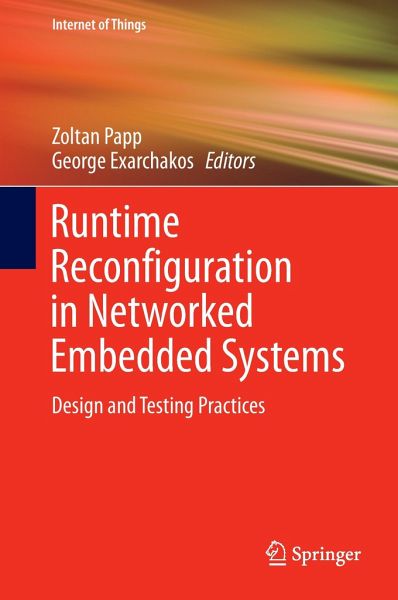
Runtime Reconfiguration in Networked Embedded Systems
Design and Testing Practices
Herausgegeben: Papp, Zoltan; Exarchakos, George

PAYBACK Punkte
38 °P sammeln!
Thisbook focuses on the design and testing of large-scale, distributed signalprocessing systems, with a special emphasis on systems architecture, toolingand best practices. Architecture modeling, model checking, model-basedevaluation and model-based design optimization occupy central roles. Targetsystems with resource constraints on processing, communication or energy supplyrequire non-trivial methodologies to model their non-functional requirements,such as timeliness, robustness, lifetime and "evolution" capacity. Besides thetheoretical foundations of the methodology, an engineering process a...
Thisbook focuses on the design and testing of large-scale, distributed signalprocessing systems, with a special emphasis on systems architecture, toolingand best practices. Architecture modeling, model checking, model-basedevaluation and model-based design optimization occupy central roles. Targetsystems with resource constraints on processing, communication or energy supplyrequire non-trivial methodologies to model their non-functional requirements,such as timeliness, robustness, lifetime and "evolution" capacity. Besides thetheoretical foundations of the methodology, an engineering process andtoolchain are described. Real-world cases illustrate the theory and practicetested by the authors in the course of the Europeanproject ARTEMIS DEMANES. The book can be used as a "cookbook" for designers andpractitioners working with complex embedded systems like sensor networks for thestructural integrity monitoring of steel bridges, and distributed micro-climatecontrol systemsfor greenhouses and smart homes.





